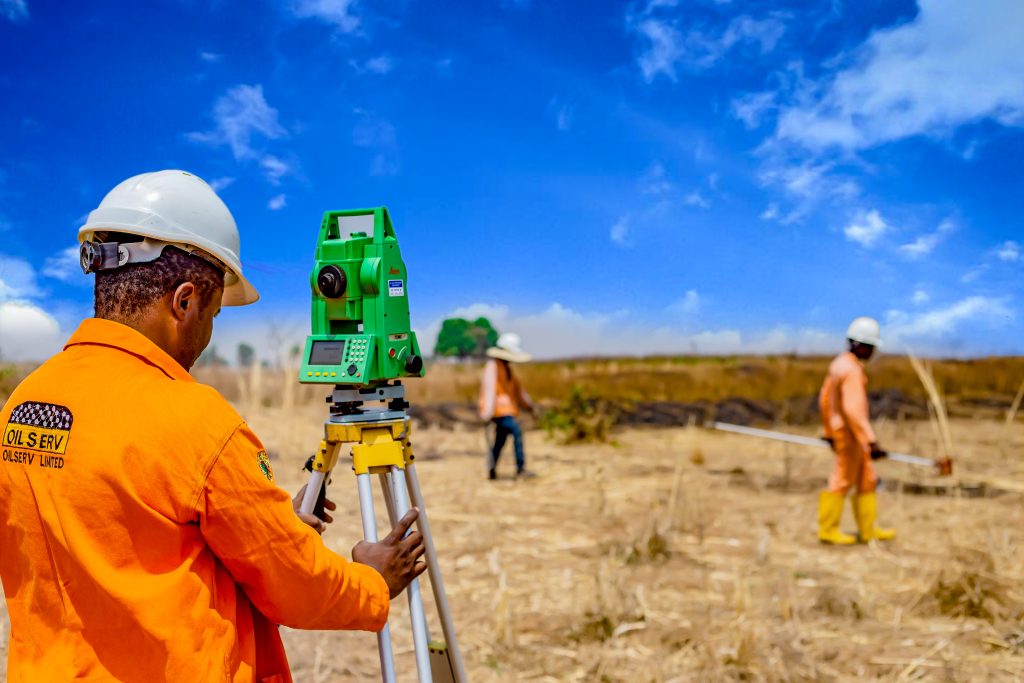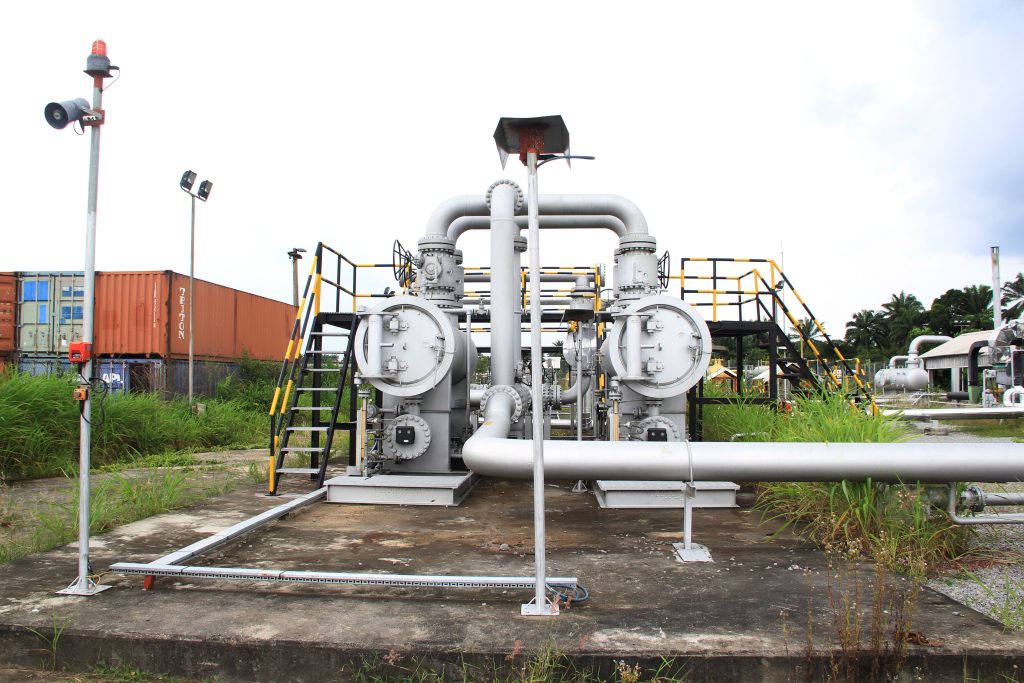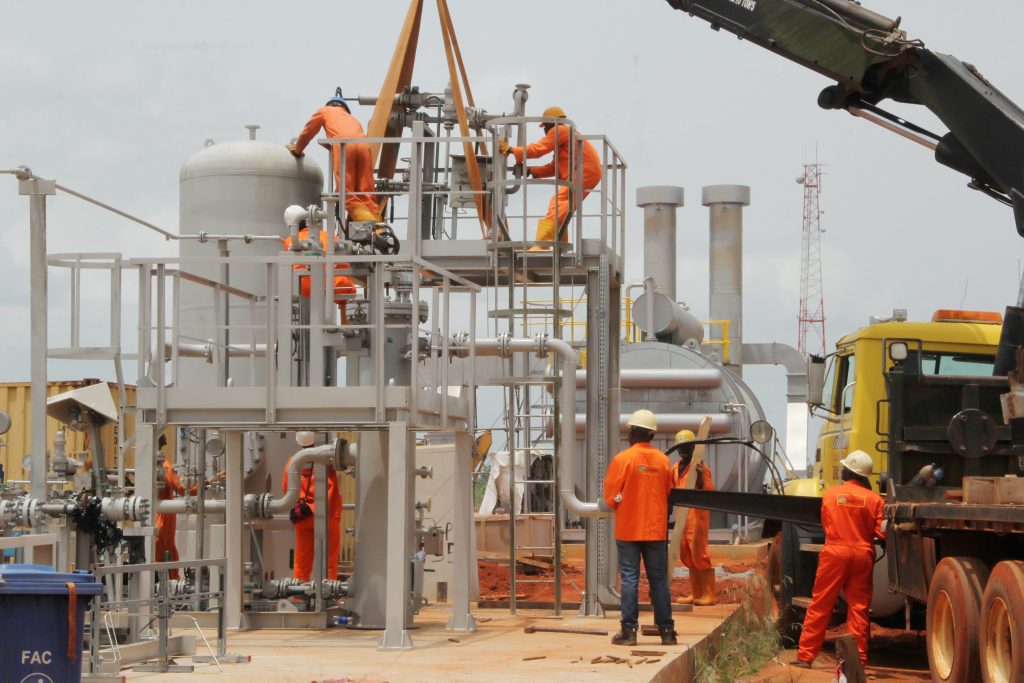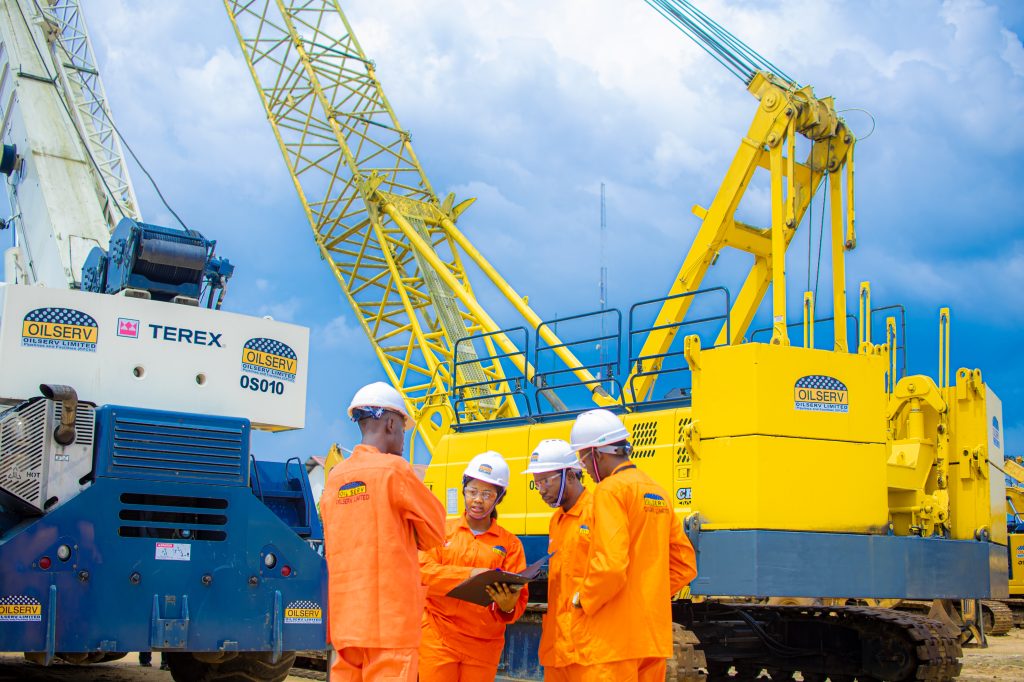At the 2025 Sub-Sahara Africa International Petroleum Exhibition and Conference (SAIPEC), hosted by the Petroleum Technology Association of Nigeria (PETAN) from February 11–13 at the Signature Halls of Eko Hotels in Lagos, transformative insights into Africa’s evolving Oil and Gas landscape were shared. Representing Oilserv Group, Engr. Chuka Eze, Managing Director of Frazimex Engineering Limited, spoke on behalf of Engr. (Dr.) Emeka Okwuosa, CON, Chairman and Group Chief Executive Officer of Oilserv Group.
During a high-level panel session on February 12, titled “Maximizing Indigenous Opportunities: Navigating IOC Divestments for Sustainable Growth in Africa’s Oil & Gas Sector,” Engr. Chuka engaged with top industry leaders including Mr. Ufoma Immanuel (CEO, Chappal Energies Limited), Mr. Victor Okoronkwo (Group Managing Director, AITEO Group), Mr. Gbite Falade (Managing Director/CEO, Aradel Holdings), and Mr. Abiodun Ogunjobi (Group Chief Technical Officer, Panocean Newcross Group), with the session moderated by Mrs. Oritsemeyiwa Eyesan, Former EVP Upstream at NNPC Limited.
Speaking from a service perspective, Engr. Chuka underscored Oilserv’s value-added offerings and introduced the Group’s strategic structure, which comprises four operating companies:
- FrazEnergy Limited is expanding its footprint in gas utilization and renewable energy, integrating sustainable solutions with traditional oil and gas investments.
- Frazimex Limited leverages cutting-edge technologies, software, and strategic partnerships to optimize hydrocarbon production while ensuring environmental sustainability.
- Crown Energy deploys innovative asset management services and advanced testing technologies – such as Automatic Ultrasound Testing (AUT) – to maintain pipeline integrity.
- Oilserv Limited continues to lead in Engineering, Procurement, and Construction (EPC) projects, notably through major initiatives like the OB3 gas pipeline and the ongoing Ajaokuta, Kaduna, Kano (AKK) gas pipeline, which underpin Africa’s energy security and industrialization goals.
Engr. Chuka highlighted that Africa is on the cusp of a transformative era in the energy sector, characterized by significant infrastructure developments, progressive policy shifts, and increasing investments in natural gas as a transition fuel. He noted the industry-wide shift from onshore to offshore operations among both International Oil Companies (IOCs) and Local Oil Companies (LOCs), emphasizing that embracing this transition positions Africa for long-term success.
He further advocated for close collaboration with governments and regional bodies—including the African Union and AfCFTA—to drive integrated energy policies, enhance intra-African trade in oil and gas services, and support investments in cross-border infrastructure such as pipelines, LNG terminals, and refineries.
On capacity building and African content, Engr. Chuka stressed the need for the continent to evolve from mere resource extraction to developing world-class expertise. He highlighted Oilserv Limited’s robust training programs that equip young engineers and technicians with hands-on field experience and global best practices. In addition, partnerships fostered by Frazimex Limited with renowned global engineering software firms are instrumental in promoting knowledge sharing and building indigenous technical capabilities. He called for harmonized cross-border African content regulations to facilitate skilled labour mobility, urging collaboration with regional financial institutions like Afrexim Bank and AfCFTA to drive this initiative.
Addressing regulatory challenges, Engr. Chuka underscored the importance of streamlining processes to eliminate confusion and inefficiencies. He recommended establishing clear guidelines—particularly regarding letters of credit—to foster smoother market operations and bolster trust among stakeholders.

The discussions at SAIPEC 2025 vividly demonstrate that strategic collaborations are the cornerstone of Africa’s energy transformation. By aligning innovative service models, technological advancements, and robust training initiatives with streamlined regulatory frameworks and cross-border partnerships, LOCs can effectively address emerging challenges and harness the continent’s vast potential. Such unified efforts are essential in paving the way toward a sustainable and self-reliant future for Africa’s oil and gas industry.














